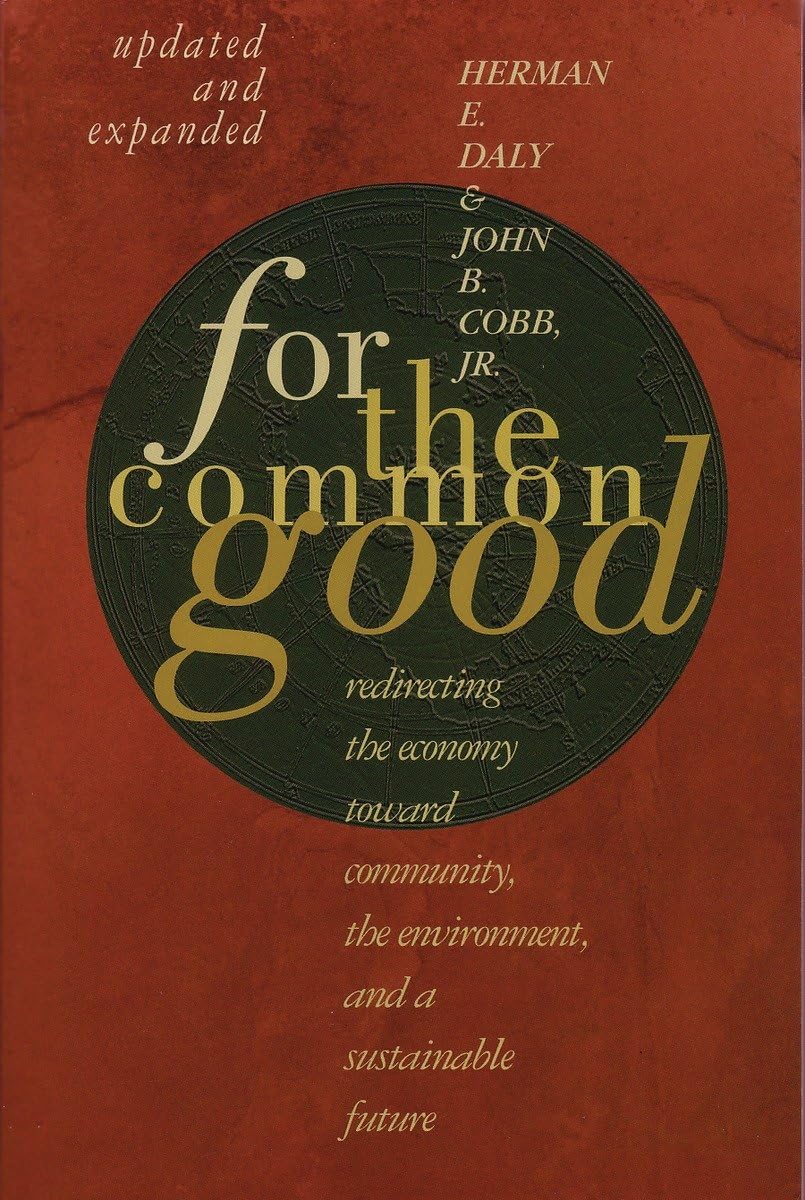

Full description not available
S**T
Not your ordinary mechanical view of the economy
Certainly an unusual book, not the mainstream babbling about the mechanism but goes deeper into UNDERSTANDING of the economy as an interaction between humans, and us with Nature.Interestingly, some ideas mentioned are from antiquity and some others from Frederick Soddy, a Nobel winner but NOT in economics. Therefore economists usually do not even hear about him (I have a PhD in the field and read about him only here).Of course Herman Daly presents us with results of his own thinking, and it is both unexpected and useful.
S**H
Nice job
Nice stuff. Got it on time too.
P**G
Let's hear it for the common good!
I have been a fan of Professor Daly's for some time. This book has some excellent analysis and some truly great commentary. The writing is a bit dry; if you're new to Professor Daly's work, you might want to try one of his other books first, like "Beyond Growth." "For the Common Good" does have some wonderfully thought-provoking lines. Just to give you a taste: "Economics cannot do without simplifying assumptions, but the trick is to use the right assumptions at the right time." Or, with regards to relying on technological fixes for environmental problems: "It is one thing to say that knowledge will grow (no one rejects that), but it is something else to presuppose that the content of new knowledge will abolish old limits faster than it discovers new ones." Another on the same subject: "If it ain't broke, don't fix it; if you must tinker, save all the pieces; and if you don't know where you're going, slow down." On population control: "Nature's way is not always best, but in this instance it seems more responsible than our current practice of allowing new human beings to be unintended by-products of the sexual fumblings of teenagers whose natural urges have been stimulated by drugs, alcohol, TV, and ill-constructed welfare incentives." Daly's Index of Sustainable Economic Welfare deserves to be far better known than it is. The analysis of misplaced concreteness, especially as it relates to the nature of debt, is very good.The authors sometimes come across as a little naive in this book. For example, they propose making the government the employer of last resort. I think they do not realize just how hard it is to make such programs work; they inevitably decline into a morass of dependency and corruption. The Washington DC municipal government has taken precisely this approach in the past few decades, with predictable results.I think the authors would also do well to do some research on the failures of utopian communities; since I was raised a Mormon, I know a lot about some of these. The chapter on religion strikes me as a bit silly. They want to bring God into the building of a more humane society; this is not necessarily bad, but I tend to think that science will take us farther than God will. In my opinion, Christianity's idea that the Second Coming of Christ is not far off is a very serious barrier to giving humanity's long-term future the attention it deserves. Talking about ethics, the authors say "But to believe that God does exist makes the ethical life more authentic." Well, that's only true if God really does exist, which I doubt.Overall, the book has some excellent points to make. If you're interested in economics and public policy, don't miss it.
M**T
Ethics of Society Delving Into Poverty, Capitalism, and What We Need To Do
A truly great and indepth book on the issue of Ethics and society and what we should do in regards to the under priviledged and destitue.
P**L
Woven together
Classic Daly. Refuting the notion, misappropriated from Adams, that individuals acting for individual reasons benefit society as a whole --- Daly reveals the intricate and interconnectedness of society, economy and the environment.
E**E
Ready it for the common good
Another Daly Classic.
D**E
Humane and incisive
Because of the large number of issues and sometimes conflicting solutions proposed, this is a difficult book to classify. Key, however, is the authors' profound refusal to subordinate the common good of the community to the god of the free market. This does not mean the elimination of markets where they have proven effective and non-destructive. It does mean keeping their operation within strict limits, so that people can regain a sense of community and a sustainable environment. Much of the book is taken up with showing the limits of market theory and practice, and in that sense should be studied by all with an interest in America's secular religion. Proposed solutions are decidedly non-ideological and largely eclectic. Both the left and the right should find points of agreement. All in all, this is an invaluable guide to many of the planet's most pressing problems and should be required reading for college undergraduates.
C**L
Four Stars
This is an iconic book to understand the importance of social and environmental factors in the the economic processes
Trustpilot
5 days ago
2 months ago